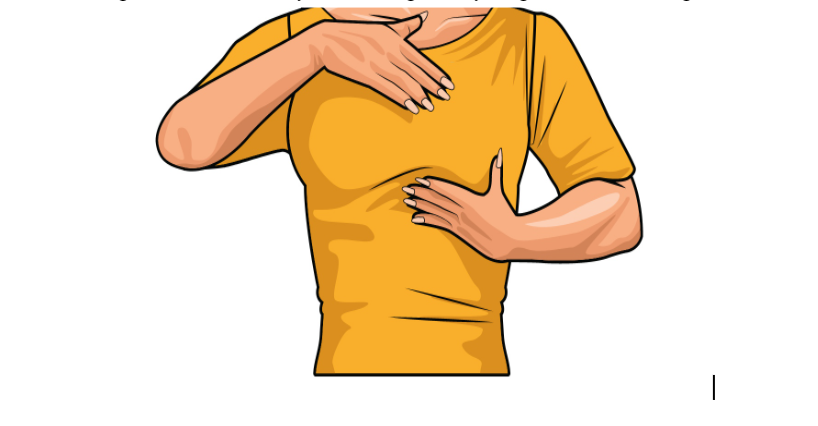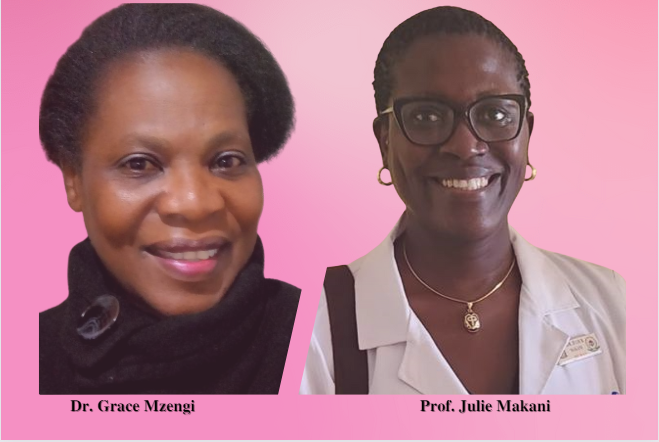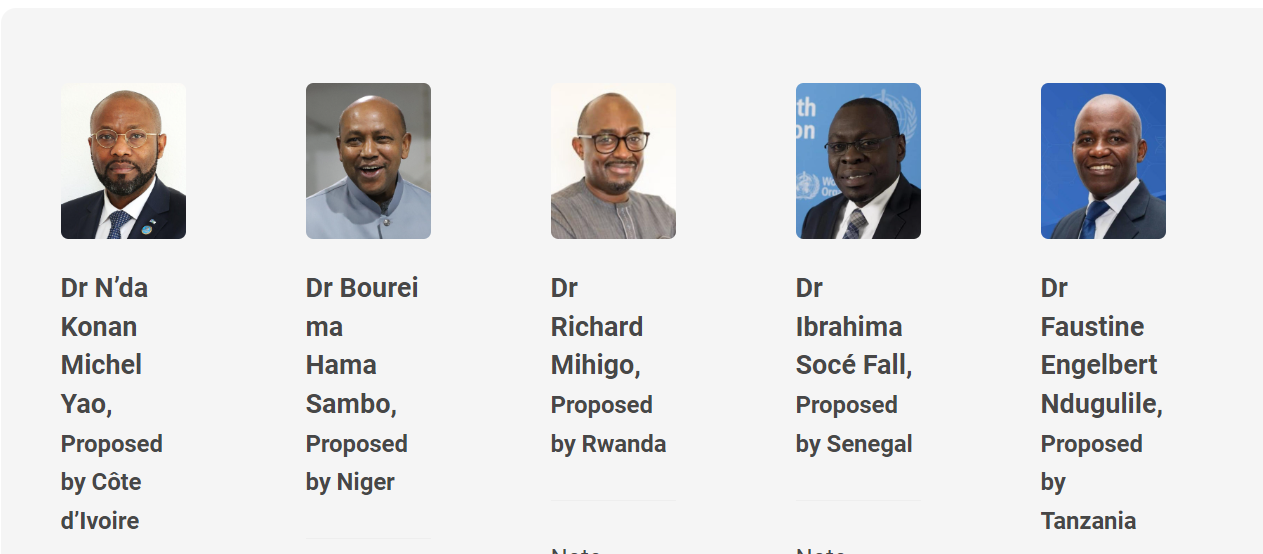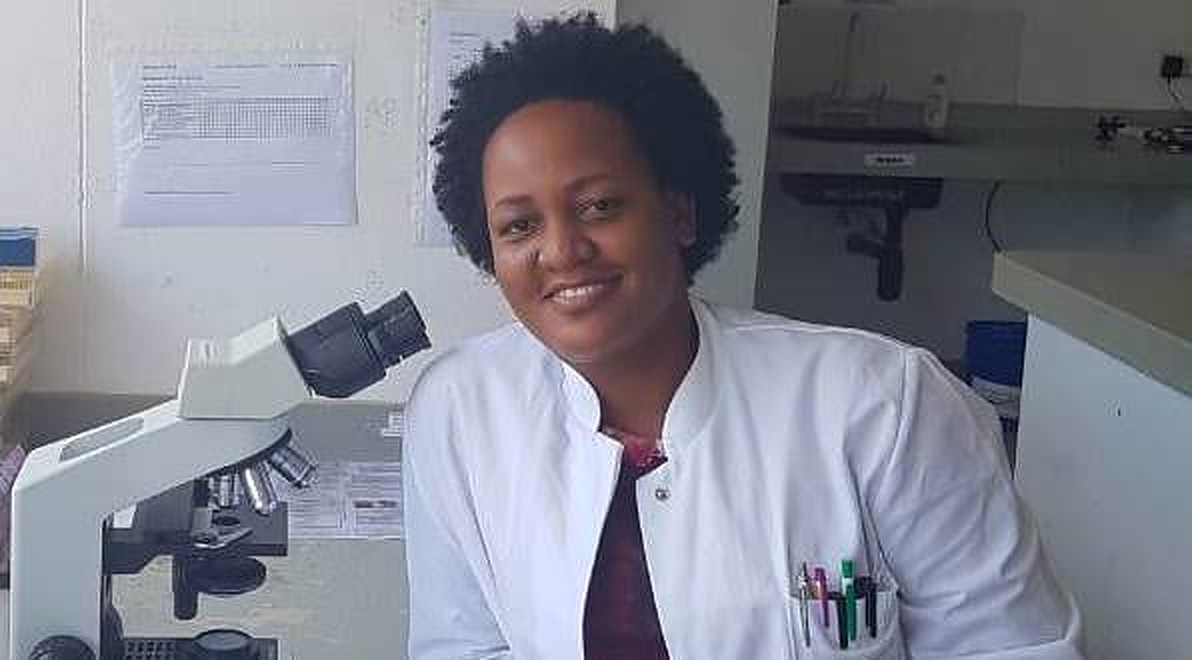- Read the story of two Tanzanian women doctors: Dr. Grace Mzengi and Prof. Julie Makani, as they delve into details of what they have seen, experienced first-hand, learnt and wish to share to the world about their Breast Cancer journey.
- They both recall–uniquely–the moments they noticed symptoms, how that felt and what prompted them to seek medical help.
- Being medical scientists who understand the disease process, do they feel differently about the outcome of their diagnosis compared to what a lay person would feel?
- Get to know what they consider as their moments of luck, and short-lived happiness at times, and what keeps them strong.
- As senior scientists, what’s their recommendation on access to treatment and care for Breast Cancer in Tanzania?
It was November 2007, when Dr. Grace Mzengi was 43. That’s when she noticed a painless, soft lump in her left breast. She picked it through her routine Breast Self-examination (BSE), a practice she had embraced since her days in medical school in the 1990s.
“I didn’t pay much attention, though. I thought it was hormonal changes and might be just a benign tumour,’’ says Dr. Mzengi, narrating to MedicoPRESS why it took her little effort to discern the changes in her breast early. At that stage, everything seemed to be alright.
However, she kept on monitoring the lump for any change in size, consistency or change under the armpit.

“It was static, which kept me thinking it was not cancerous. In 2008 I didn’t take any action but kept on self-monitoring.”
Happy moments at Ocean Road
In 2009, while at the Ocean Road Cancer Institute in Dar es Salaam, Dr. Mzengi underwent a simple procedure known as Fine Needle Aspiration (FNA) of the breast.. This usually involves passing a thin needle through the skin to get a sample of tissue(a biopsy). The results from her biopsy tissue revealed that she didn’t have cancer. Instead, a non-cancerous growth known as fibroadenoma was detected.
“ I was very happy with this,” she says.
My next decision, and the sad reality
Mzengi’s duty station was in Mafinga Clinical Officers’ Training Centre, Mufindi District where she was the institution’s Principal. In September 2010, she decided to take advantage of the surgical services from a team of visiting Doctors from Belgium who used to perform surgeries in collaboration with local doctors in her District.
“It is recommended to remove breast lump for women over 40 years, I decided to have it removed,” she says, explaining how she went on to nurse her surgical wound while maintaining her privacy.
“During that period of time I was very comfortable with my privacy because my students were on holiday,” says Dr. Mzengi.
But at this point, the results of what the surgeon found after removing her breast tissue were yet to come.
In October 2010, the surgeon who operated on Dr. Mzengi delivered a pathology report of her breast tissue, via email. The results revealed a cancer in stage 2, which had invaded her breast tissue. It is known as invasive papillary adenocarcinoma.
Facing the reality
“It was after working hours, I was alone in the office when I read the report from my email. It was not easy, I felt dizzy and cried. It was as if I was told that “your life is limited to certain years.”
“Keeping this news to myself was more disturbing. I decided to share it with my close friend who is a fellow doctor working in Dar es Salaam. I called her and shared the news. I was surprised how calm she was, and told me not to worry if the treatment will be initiated early I will be fine.”
“On the next day, I shared the news with my deputy at work. He read the report and told me, “at this stage if you get treatment you will be fine.” Hearing from fellow doctors these positive remarks, I started seeing the light ahead and new hope again.”
“In short, being a medical scientist who understands the disease processes, there is no difference in feeling about the diagnosis. I learnt from other lay people who narrated their cancer stories, most of us at first, we have denial and react with agony like expressing panic and crying.”
What next?
“After the diagnosis, I was undecided about when to start treatment. I kept on delaying.”
“In April 2011, I went to Apollo Hospital, in India. Doctors performed further investigations before I was initiated on treatment. This was another difficult moment.”
“I was worried about the results of the doctor’s investigations and what would turn out to be the extent of the disease, and chemotherapy side effects.”

But during the same month Dr. Mzengi started treatment, which she completed in August 2011.
“It was not easy to tolerate. There were moments when I got infections and when my white blood cells were decreasing. I went through radiotherapy, and I tolerated it well.”
Ten years with no health problems
Dr. Mzengi went through the course of treatment- first with surgery in 2010, followed by chemotherapy in 2011, then hormonal therapy and radiotherapy.
Following the treatment, she says, “I survived for 10 years with no health problems. For all those 10 years I kept the habit of routine monthly Self-Breast Examination, I never felt any changes in my breasts.”
Cancer recurs
In May 2021, Dr. Mzengi underwent a yearly medical follow-up where a mammography, Breast Ultrasound and Chest X-ray tests were done. The results were normal.
But in December 2021, during a monthly routine breast examination, she felt a painless soft mass under the previous scar of the same breast.
“ In February 2022 the mass was removed and examined at the oncology department of the Benjamin Mkapa Hospital in Dodoma. Then a pathology report revealed that the cancer was recurring.”
“I totally lost hope. My nights were sleepless for a long time. I was depressed.”
“ This was the most difficult moment in my life. I was weighing my options on starting or not starting treatment. Lastly, I started the first cycle of chemotherapy. I was still unhappy with treatment.”
Handling heart failure
“ After the first cycle of chemotherapy, I went to Agha Khan Hospital in Dar es Salaam to seek a second opinion. I wanted to clear my doubt on diagnosis and avoid chemotherapy. Thanks to the oncologist and surgeon who counselled me. I regained the energy to undergo the treatment.”
“I had 6 cycles of chemotherapy and mastectomy. After completion of chemotherapy, two months later I had heart failure. This was another hit in my life as I have to attend Cardiac Clinics and take medicine daily.”
Biggest lesson
“I have learnt that anyone can get breast cancer regardless of status. Any cancer is like a battle. From getting the results of the diagnosis, during treatment, after treatment and lifetime. One has to fight it aggressively and aim to win.”
“Breast self-examination should be advocated for early detection. A good example is when I picked the lump seven months after medical investigation at the hospital.”
“Another lesson is; you cannot fight alone, you need people, like health workers, family members, friends, spiritual leaders and the community around you. All of them have a role to play in your treatment process.”
“Sharing information to your friends, co-workers and religious leaders reduces stigma and depression.”
“People have to seek information from reliable sources. There are myths and misinformation in our communities about the disease and treatment.”
What it takes to reveal
“Before treatment I was healthy and active. After treatment, I had many changes like baldness, skin and nails changes, episodes of hot flushes regardless of cold weather in Mafinga. For people who knew me, they could ask what happened. Apart from the community, I was teaching medical students. I have to attend my sessions despite my looks and feeling.”
“It was not tough to reveal what I was going through because I wanted my students to learn about breast cancer from the preventive side, examination, diagnosis and management. I also advocate breast self – examination for early detection. I also used my social media pages to reveal and create awareness every October.”
What needs to be improved?
“I recommend that public and private hospitals build capacity for doctors on critical investigations to diagnose patients so that the patients get proper management.”
“The cost for cancer medicines is high. Some patients cannot afford and opt to seek traditional medicine. The government has to review and consider a waiver on cancer medicines.”
“All cancer centres have to use breast cancer survivors as counsellors to newly diagnosed patients and those undergoing treatment.”
What keeps her strong?
“It’s faith, hope and love.”
“I have faith in God, I believe that I’m living for purpose. My family members, friends and neighbours have been very supportive.”
The Story Of Prof. Julie Makani And Her Breast Cancer Journey
It was one Friday morning, in March 2021 and Julie Makani was 51. That’s when she noticed a spot of blood on her sheets below the breasts, yet it never crossed her mind that she could be headed for a life-changing experience.
“It was very dramatic really how it happened,’’ she says, recalling how she had woken up on a normal day, rushing to an online meeting. “I did not think much of it really. I went on with the meeting,”she says.
“I felt really wet as blood was now actively draining from my breast. I was alarmed by this and decided to call my doctor who advised that I come in immediately,” she tells MedicoPRESS, saying that despite being scary, the bleeding presented luck.
Most women, she says, don’t get prompt medical attention–and some would ignore the symptoms until matters get worse. But for Makani, the first luck was getting to detect the probelm early and getting swift medical attention. The second luck for her was being a medical doctor.
“I was fortunate to understand the symptoms early on and seek treatment as early as possible, because there are many women that notice a new breast symptom and do not understand that it could be something serious and may not be worried or would choose to ignore it.”
Switching from doctor to patient
“There was a situation where it was very difficult for me to be a patient because I couldn’t switch off my doctor or scientist mind, and then as a patient you are in a situation where you wish you didn’t have all this information, because you find that information sometimes very paralysing.”
Julie narrates how she desired to be taken care of as a normal patient during the course of treatment. But this proved challenging because of who she is, and how she was perceived in the medical settings.
“And being a senior to most doctors that looked after me, since most know me as their teacher, I was very stressed because doctors would second-guess and be very anxious or apprehensive when they see me, or they would ask me what I thought. As a doctor you can’t switch that role, you read about it and get opinions from colleagues.”
“I did not think it’s a bad thing to ask what my thoughts were because I wanted to share my perspective, so that too was a situation where it was very difficult for me to be patient,” says Makani, a renowned medical scientist and Associate Professor in Haematology and Blood Transfusion at Muhimbili University of Health and Allied Sciences(MUHAS) in Tanzania.
Being diagnosed, the gaps
There is often a series of diagnostic processes that a patient has to undergo if they are suspected of breast cancer before a diagnosis is confirmed. Makani was asked about breast self-awareness. “I did not have a breast lump to begin with.”
On meeting up with her doctor, an ultrasound of the breast was taken and the radiologist immediately noticed an abnormality. She was scheduled for a mammogram the next day which also revealed an abnormality.
The doctor recommended that she undergo a core needle biopsy, which entails using a long, hollow tube to obtain a sample of tissue from the breast.
“It took at least a month to get back the pathological results. This made me reflect and come to a realisation of other people in my shoes, because for me it took a month to get the results back. What about someone who doesn’t have access to care as I do and who come from locations further away? This truly kept me up some nights.”
Being able to readily access medical care as she did, was her luck number three. But she had to ensure further delays.
“The diagnosis was delayed, and for me as a doctor I was ashamed because I knew what was supposed to be done in terms of diagnostics, but I thank Ocean Road Cancer Institute and Agha Khan Hospital for all that they have done, in terms of diagnosis and the treatments that they do.”
“With hindsight, I realise that there are things, tiny significant details, to add on that would make all the difference. The diagnostic part is really something that is an issue, because once the diagnosis is made then it almost immediately guides you to treatment and prevents delay to worse circumstances.”
“For most patients this poses a sizable barrier; most of them would eventually wander around in the health system, mainly on self-referral as their symptoms worsen. Studies have shown that the median delay was almost 1 year (358 days), between first symptoms to cancer diagnosis. Bad enough, most would resort to traditional healing in response to health system barriers.”
Breast cancer is the second most common cause of cancer among women in Tanzania and is the second highest cause of death due to cancer among women in the country.
It is predicted that from 2012 to 2030 the number of new breast cancer cases in Tanzania will increase by 82% and the number of breast cancer deaths will increase by 80%.
Advice from friends
Makani recounts being told on many occasions to approach the disease differently–citing advice from friends, colleagues and family members.
“I think another thing that happened was a lot of opinions were thrown my way, to use a number of certain medications, to eat some kinds of foods and herbs, go to this prayer event, or a certain congregation or meet with a particular pastor, or places where I could join to pray. I was told this by my doctors, and colleagues as well, so it made me think so much about others who weren’t able to discern this information and choose wisely. This is often a very overwhelming period.”
Coming out publicly
Makani came out publicly about her predicament in May 2022 with the aim of sharing her story to help people relate and advocate for others to talk about their illnesses and seek treatment early.
“I made the choice because, mainly as part of advocacy, being part of the work that we do in Sickle Cell Disease, so as a sickle cell doctor-scientist, I advocate for people to talk about it, so I felt I needed to talk about it too.”
She says that her decision was received with support from people who thought what she was doing was quite inspiring. But a section of other people advised that she should concentrate on herself and get better first.
“I kept a journal and documented most of my experience.” This is her luck number four.
“I am lucky that my husband is a creative writer, so he asked me questions and helped me reflect. I did a lot of reading, and processing of my emotions, which was very therapeutic.”
“I thought maybe what I write would help people learn from my experience, so I refused to sit around waiting for situations to suit me, I thought to myself, what if I die tomorrow?”
Hard to trust
“Sometimes people wondered if I was truly sick. Others believed I was not sick, because I could attend meetings like the rest. Some would meet me and openly state why I did not lose my hair. This made me realise the assumptions people make when they havent walked in your shoes.”
“Societal stigmatisation of cancer leads to not speaking of symptoms or even holding back medical care, in fear of what others might say or think of them. Family and friends have significant influence as both can facilitate or become barriers to care.”
Treatment journey
It is often a long walk from diagnosis to treatment for any cancer patient, not to mention the emotional turmoil that comes with the whole experience. It often involves a series of examinations, tests and treatments.
To this Makani says, “I kept thinking of how other patients do it, because the whole process was complicated, it is very easy for one to get discouraged, it also opens up room for corruption and incompetence.”
But Makani was fortunate enough to attend further treatments in South Africa which came as a suggestion from two of her most trusted colleagues, who followed her up on her progress throughout the whole ordeal.
“I went to see doctors in South Africa. The doctor I met with was a specialist in surgical oncology for breast cancer alone. She operated about 20 patients a day. The radiologist was also a specialist in breast cancer radiology and could read images for about 100 patients a day. I could see the difference in experience and expertise they both held which was quite contrary to Tanzania.”
Looking at the health system in another country, Prof. Makani got an impression of a multi-disciplinary approach as well as a well-laid out emergency protocols for every condition.
In the midst of COVID-19
“I had a breast conservative surgery where they had to remove a portion of my breast and a reconstructive surgeon had to take a huge portion from the other side just for them to be equal.”
“I remember I had been diagnosed with COVID at the time but also developed complications such as neutropenia and burns during radiation and chemotherapy and there was a protocol laid in place for that. There were immediate diagnostics, as there were in-surgery diagnostic facilities, and accessible treatment options.”
Makani confides that she witnessed an inbuilt system throughout. She believes that if she had not gone for treatment, she would not have been standing where she is today, despite the cancer being at a very early stage.
Feeling humbled
Prof. Makani says she is humbled by the fact that she is at the receiving-end, like most of the patients that she had seen over the years.
The other remarkably humbling experience for her was how one’s health could change quite abruptly if they don’t have health insurance or the ability to pay for treatment.
“I am really glad there is a big campaign for health insurance, since one big lesson for me is how important health insurance is. I was lucky the government and Muhimbili National Hospital covered some of my medical bills, my NHIF as well as private insurance. The disappointing reality is that without health insurance you are liable to death just like that. The reality check being that you won’t have access to care.”
What keeps her strong?
Makani pins her hopes on the life of prayer and relying on the Word of God, her support system which includes the people who genuinely give the tiniest bit of support and those who go the extra mile to show her that they do care.
What became of her future plans
Makani knew about her condition during the pandemic, when people were worried, and people were still dying. She too had been diagnosed with COVID.
“Looking back at the last 20 years when I had taken up initiative and most responsibilities about Sickle Cell Disease in Tanzania, I recalled that I had told myself that when I am 50 years of age I would retire to focus more on scientific work and meeting up with patients which is what I love most to do.”
“But that was not the case for long now. My condition forced me to redirect my views. But I am grateful that even if I die today, I am sure there are six Principal Investigators[my mentees] who I could count on to take leads and propel the mission forward.”
Edited by Syriacus Buguzi in compliance with MedicoPRESS Editorial guidelines and policy







